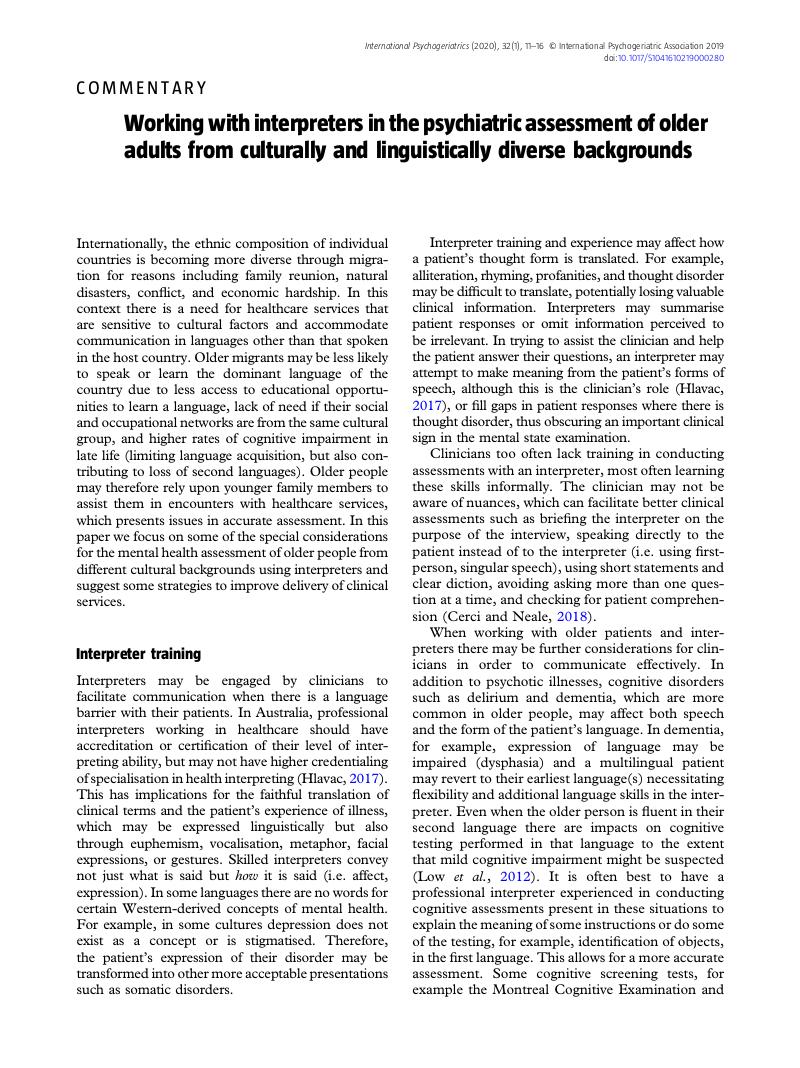Crossref Citations
This article has been cited by the following publications. This list is generated based on data provided by Crossref.
Jidong, Dung E.
Tribe, Rachel
and
Gannon, Kenneth N.
2020.
Challenges faced by mental health interpreters in East London: An interpretative phenomenological analysis.
Counselling Psychology Review,
Vol. 35,
Issue. 2,
p.
40.
Fragkou, Effrossyni (Effie)
2020.
Handbook of Research on Medical Interpreting.
p.
291.
Marquine, María J.
and
Jimenez, Daniel
2020.
Cultural and linguistic proficiency in mental health care: a crucial aspect of professional competence.
International Psychogeriatrics,
Vol. 32,
Issue. 1,
p.
1.
Sundakov-Krumins, Tali Elsayed
Lubbe, Sean
and
Wand, Anne Pamela Frances
2022.
Homicide and Dementia: A Systematic Review.
Dementia and Geriatric Cognitive Disorders,
Vol. 51,
Issue. 1,
p.
1.
Rodríguez-Vicente, Natalia
Young, Alys
Vicary, Sarah
Napier, Jemina
Tipton, Rebecca
and
Hulme, Celia
2024.
Interpreter mediation in statutory mental health assessments: A scoping review.
Interpreting and Society,
Vol. 4,
Issue. 2,
p.
159.



